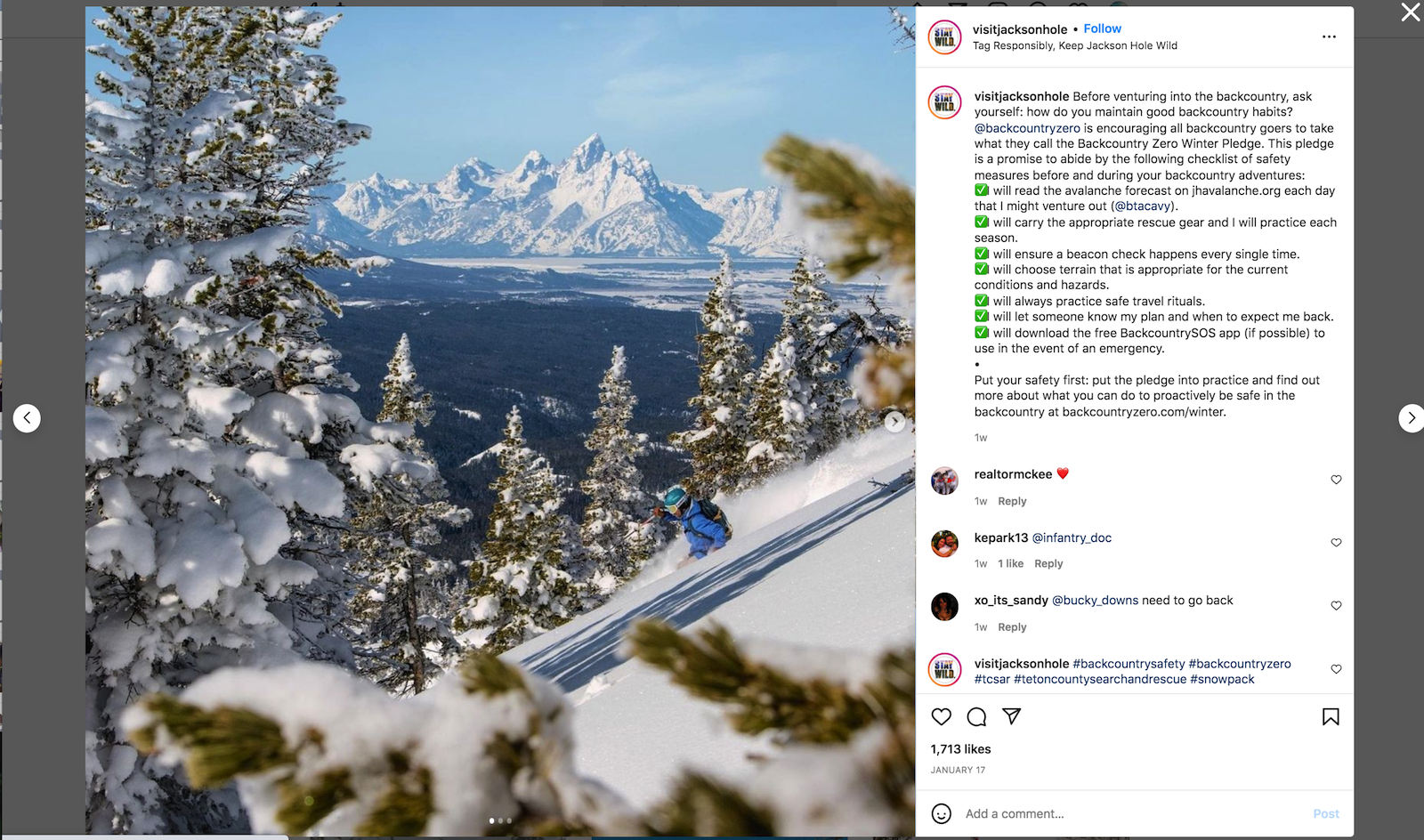Do you care about being an environmentally sustainable traveler? Fantastic — but community sustainability matters, too. Because your favorite mountain town may be one busy holiday weekend away from imploding from overtourism. Some signs that it’s coming? Try 30-minute lift lines at ski resorts, closed restaurants, and $500 a night for a hotel room (three-star, most likely).
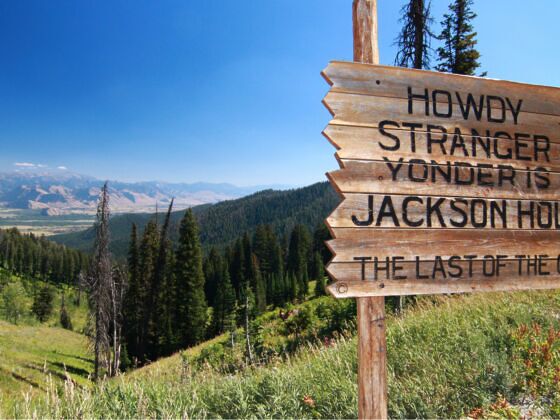
Overtourism Is Killing Mountain Towns, but Here Are 10 Ways to Fight It
Many mountain towns are tiny both in geographic size and population, and there are very real effects of overtourism and over-demand. Demand for Airbnbs pushes renters out of their long-term housing, which, because supply and demand is a thing, drives up the cost of long-term housing as the inventory shrinks. That causes long-term residents to leave when they can’t find housing, which leaves entry-level jobs empty — but since the cost of rent went up, many residents probably can’t afford to take entry-level jobs, anyway.
That means grocery stores can’t restock shelves as quickly, and pharmacies may have limited hours. Hospitals are understaffed, so ER wait times are longer. Restaurants stop offering takeout, there’s a 15-minute wait to get a drink at every bar, and half the ski lifts at your favorite mountain may be closed because there’s no one to work them. Eventually, businesses and restaurants close because they can’t find employees, making the remaining restaurants more crowded and expensive.
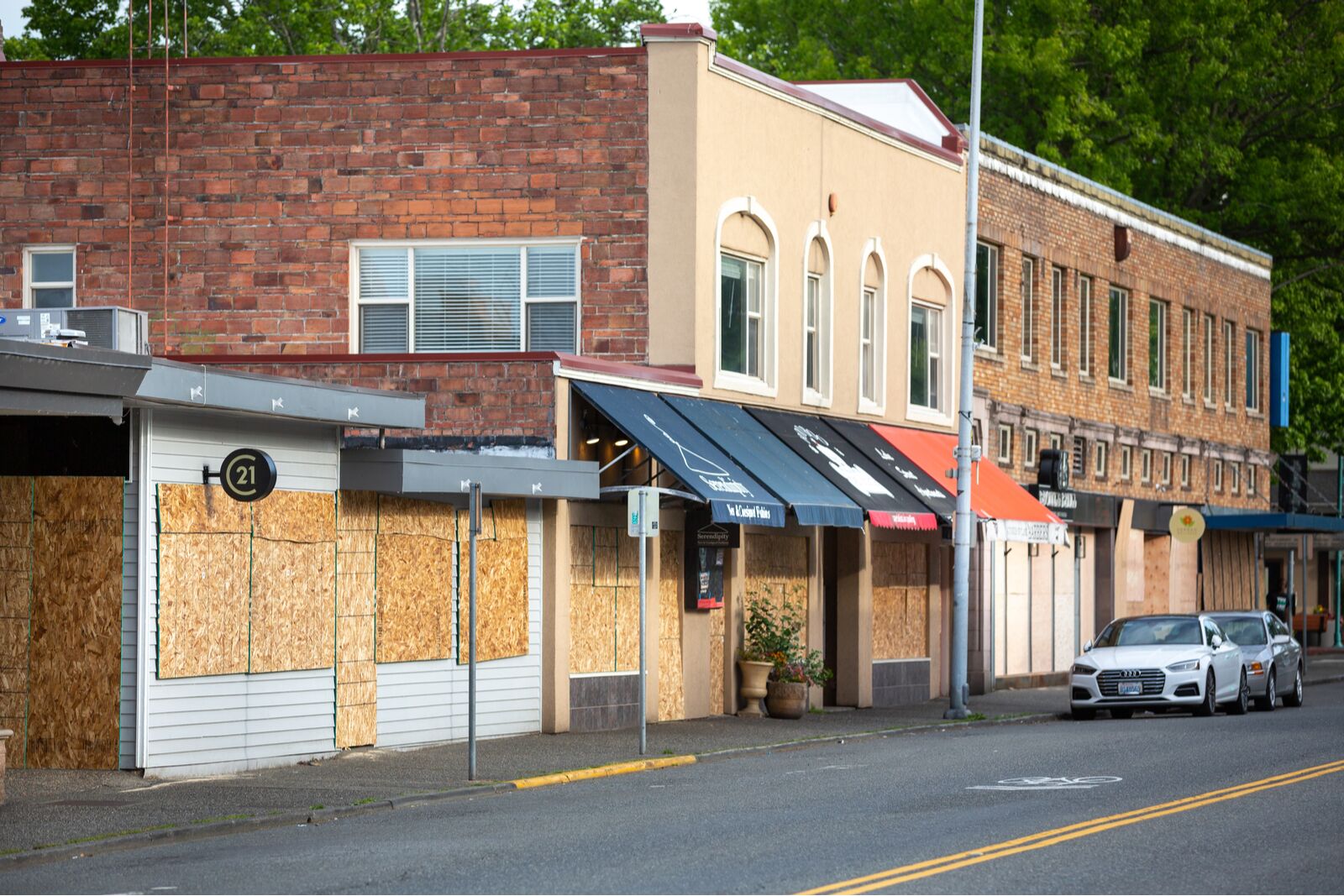
Permanently closed businesses may become a more common sight in your favorite mountain towns // Photo: VDB Photos/Shutterstock
And it’s not just housing. Excessive people in town crowd roads and cause infrastructure damage. During snowstorms, plow services may take two or three days to clean driveways as there are too many occupied houses and not enough plow drivers. We’ve all heard stories about mountain towns suffering during COVID as waves of tech and business workers, now able to work remotely, moved to mountain towns. And while no one blames anyone for wanting to get out of the city and move to the mountains, there’s no denying that a sudden influx of extra people has an impact.
Areas like Lake Tahoe (where I live, in California and Nevada), Coeur D’Alene, Idaho; and Crested Butte, Colorado (never an affordable place to begin with) have been in the news for the ongoing battle between long-term residents and new residents. But perhaps no place is more of a poster child for the hazards of overtourism and overgrowth than Jackson, WY, a city where even middle-income workers can’t afford housing. In 2015, the average cost of a home in Jackson was $1.76 million and a rent hike to $1,800 for a two-bedroom apartment was newsworthy. In December 2021, $3.98 million was the average asking price of homes on the market in Jackson and “local worker” housing starts at $1,700 a month for a studio apartment — hardly feasible when Wyoming‘s minimum wage is $5.15 an hour.
Certainly overtourism isn’t to blame for all of these problems — Jackson, in fact, has a huge percentage of second-home residents that eat up available rental home inventory — but it’s part of it. Does that mean you should stop visiting your favorite mountain towns? Certainly not — but there are some actionable steps you can take to help sustain healthy communities and fight overtourism on your next trip to the mountains.
1. Don’t visit on weekends
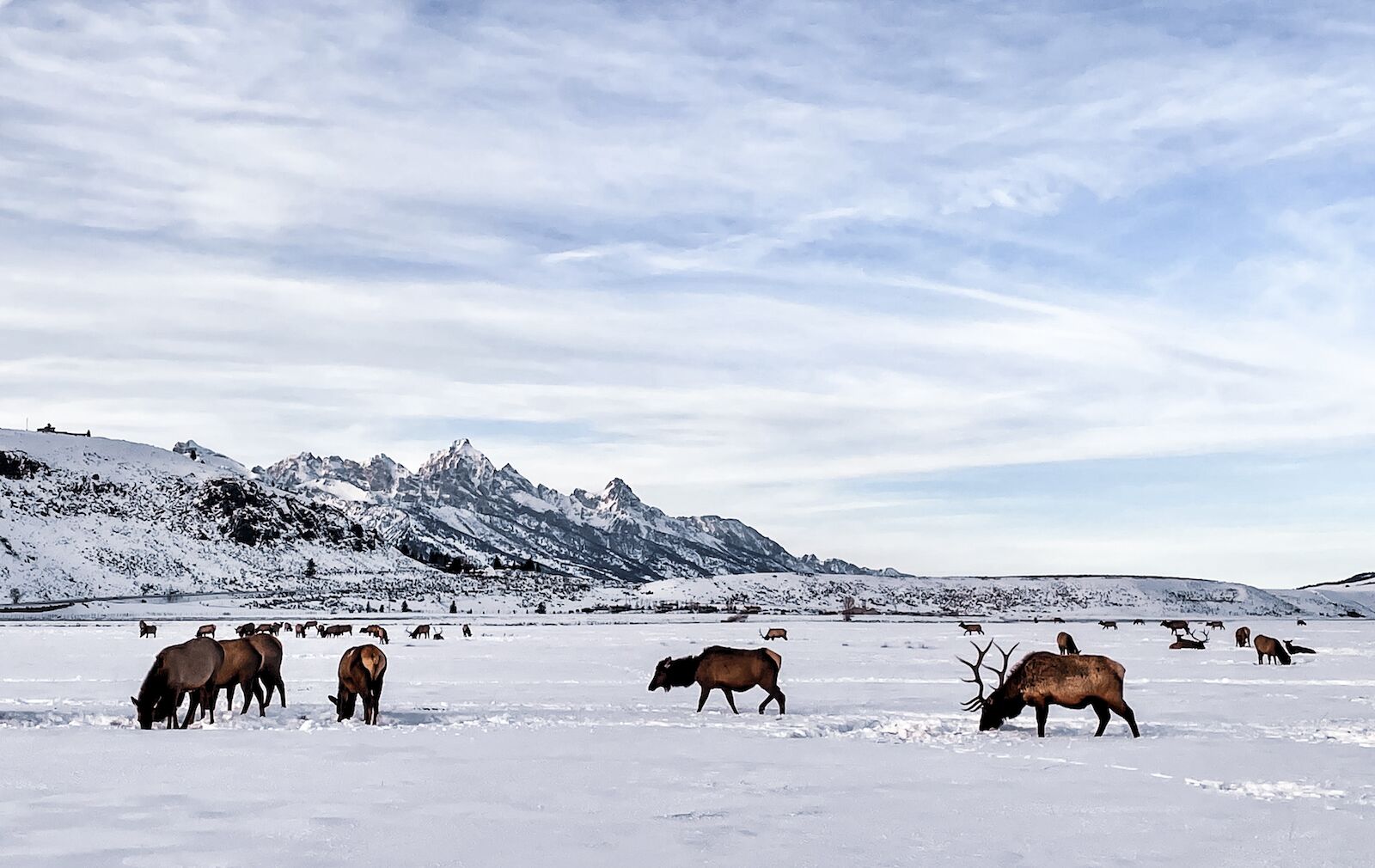
Photo: Suzie Dundas
I know — you only have so much vacation time. But going to a mountain town on a weekend kind of sucks anyway. Traffic is horrible, especially to get to the mountains: the regular three-hour drive from San Francisco to Lake Tahoe can easily take 7 or 8 hours on a Friday afternoon. Weekends are already very crowded in mountain towns, and guests will have longer lines at ski lifts, more crowds on hiking trails, and longer waits at restaurants. Visiting midweek is cheaper and less crowded and makes it far easier to get into your favorite restaurants or grab a drink at your favorite bar. It also means you have a much better chance of finding last-minute tickets and tour offerings.
At Jackson Hole’s National Elk Refuge, sleigh rides through the preserve book up quickly on weekends — but same-day seats are almost always available midweek. Ask your boss if you can work on a weekend and take a Monday off — it’ll be well iworth it. It also spreads demand out throughout the week, which is easier for local businesses and staff.
2. Only use licensed and local guides
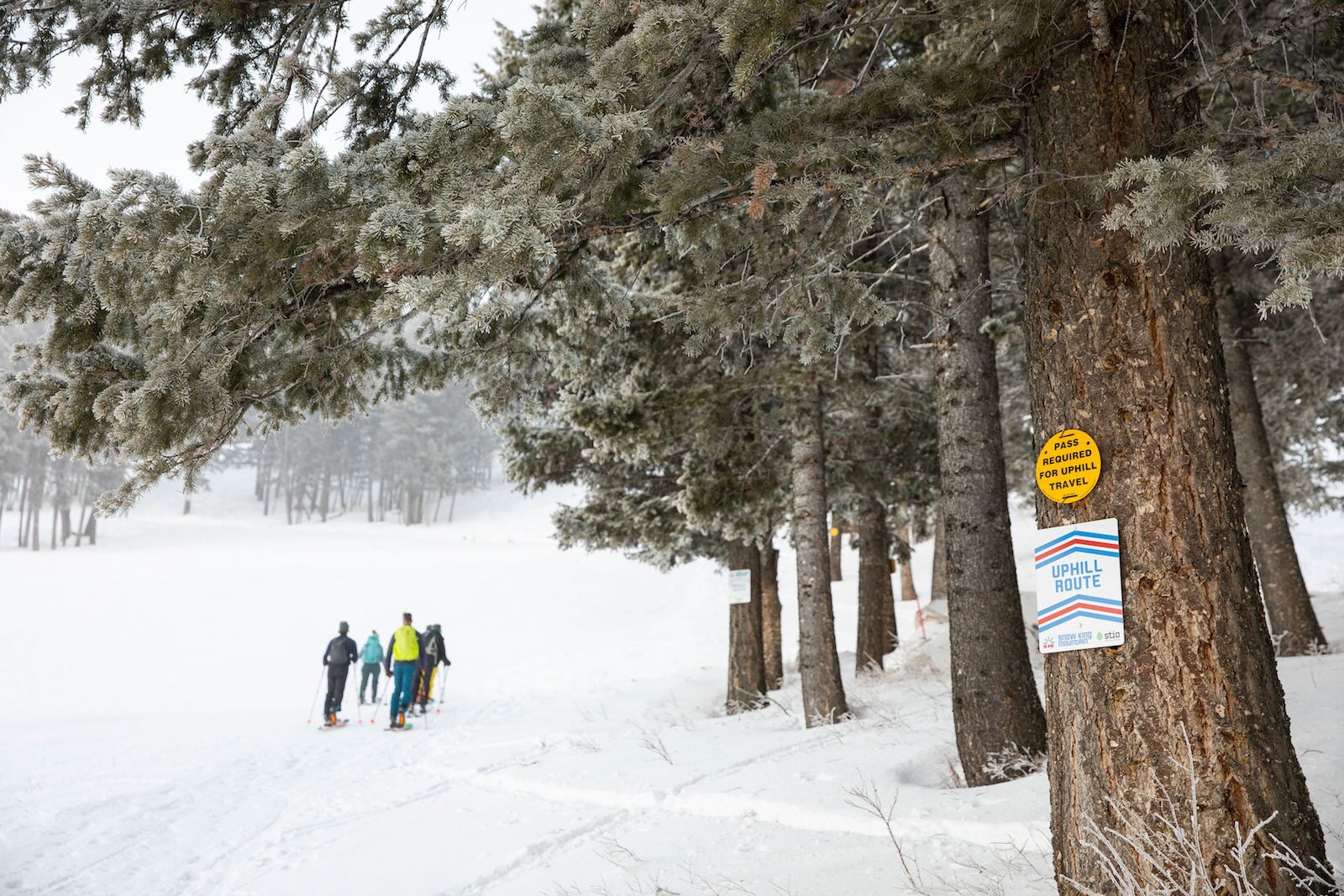
Photo: Jay Nel-McIntosh / www.jayphotography.com
You know what’s a real bummer? When you’ve lived in a mountain town for a while and your favorite outdoor areas get designated as off-limits because irresponsible tourists trashed it or parked in off-limits areas. But when that happens, it’s not always the tourist’s fault. Yes, there’s a huge element of personal responsibility. But if a visitor is in the wilderness with a guide who doesn’t know what areas backcountry skiers should stay away from to protect bighorn sheep or ignores rules about having a pass to camp at Jenny Lake, it’s easy to make mistakes without knowing it.
That’s why hiring a local guide is essential. Not only does it create highly skilled, high-paying jobs for residents, but local guides are more likely to know how to avoid backcountry crowds and keep you out of unsafe or off-limits areas. If visitors show that they can follow the rules about safety recreating, local governments are more likely to expand recreation areas, which is good for both residents and guests. But the opposite happens when out-of-town guides and visitors consistently fail to follow recreation and access rules: there are only so many second chances before governments and lawmakers declare areas totally off-limits.
3. Leave the car at home (or at least carpool)
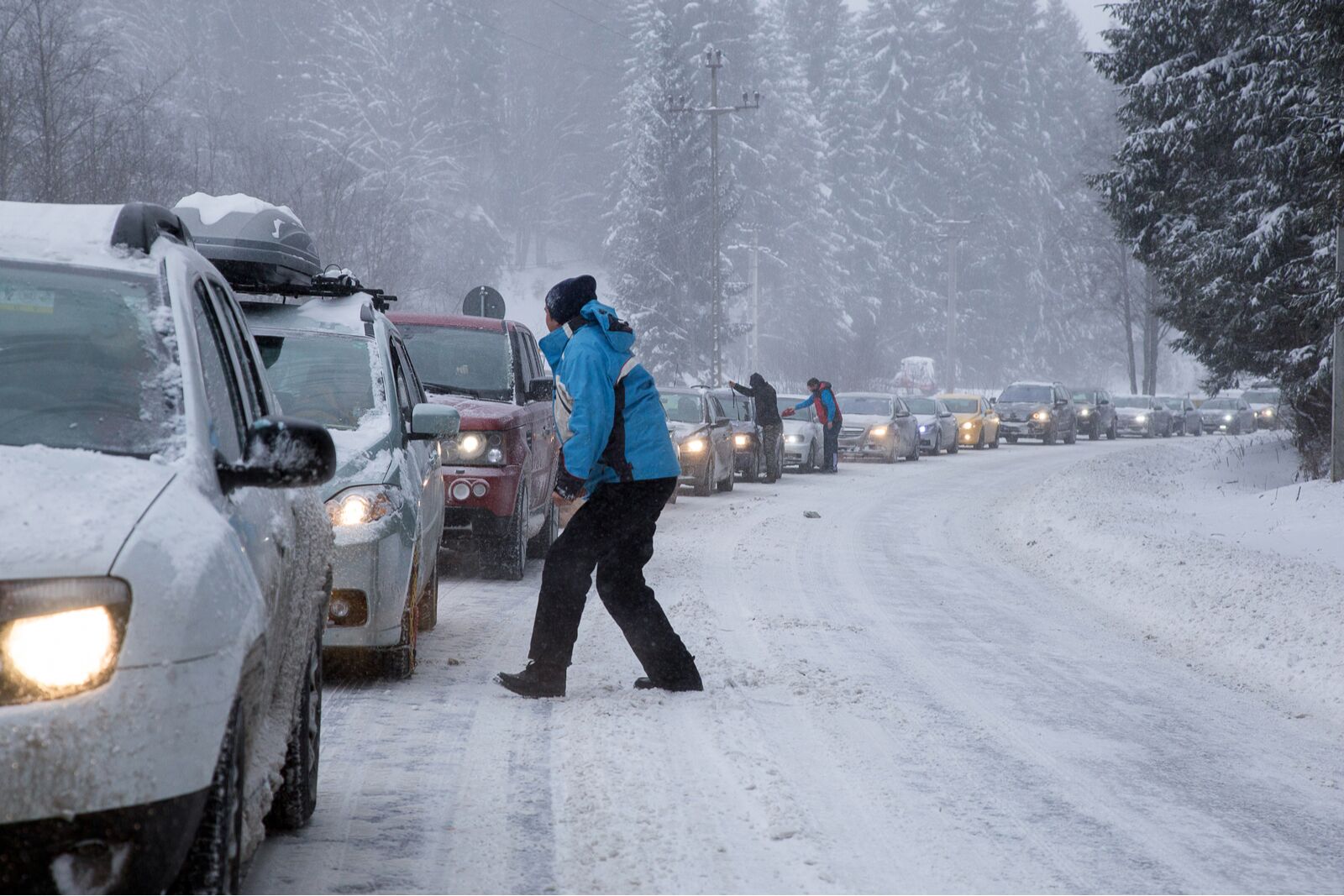
Inexperienced drivers and too many cars on the road in mountain towns leads to hours-long backups and delays for tourists and residents alike. Photo: Penka Todorova Vitkova/Shutterstock
It may sound petty, but anyone who’s lived in DC or LA knows that ongoing traffic is a legitimate source of stress. And since mountain towns generally have narrow, two-lane roads — which sometimes get narrowed down to one large lane after heavy snowfall — it takes just a small fraction of normal city traffic for roads to come to a standstill.
So if you can, leave the car at home. Hiring a taxi both gives money to the local economy and ensures someone familiar with icy roads, mountain passes, and wildlife is doing the driving. Too many cars on the road leads to more accidents and more frequent emergency response efforts, as well as quicker road deterioration, which leads to tax increases for residents. A community is not sustainable and healthy if there’s so much traffic on the roads that full-time residents can’t take their kids to school on time or miss doctor’s appointments because a driver without snow chains spun out and closed a road.
4. Spend a day away from the main sights
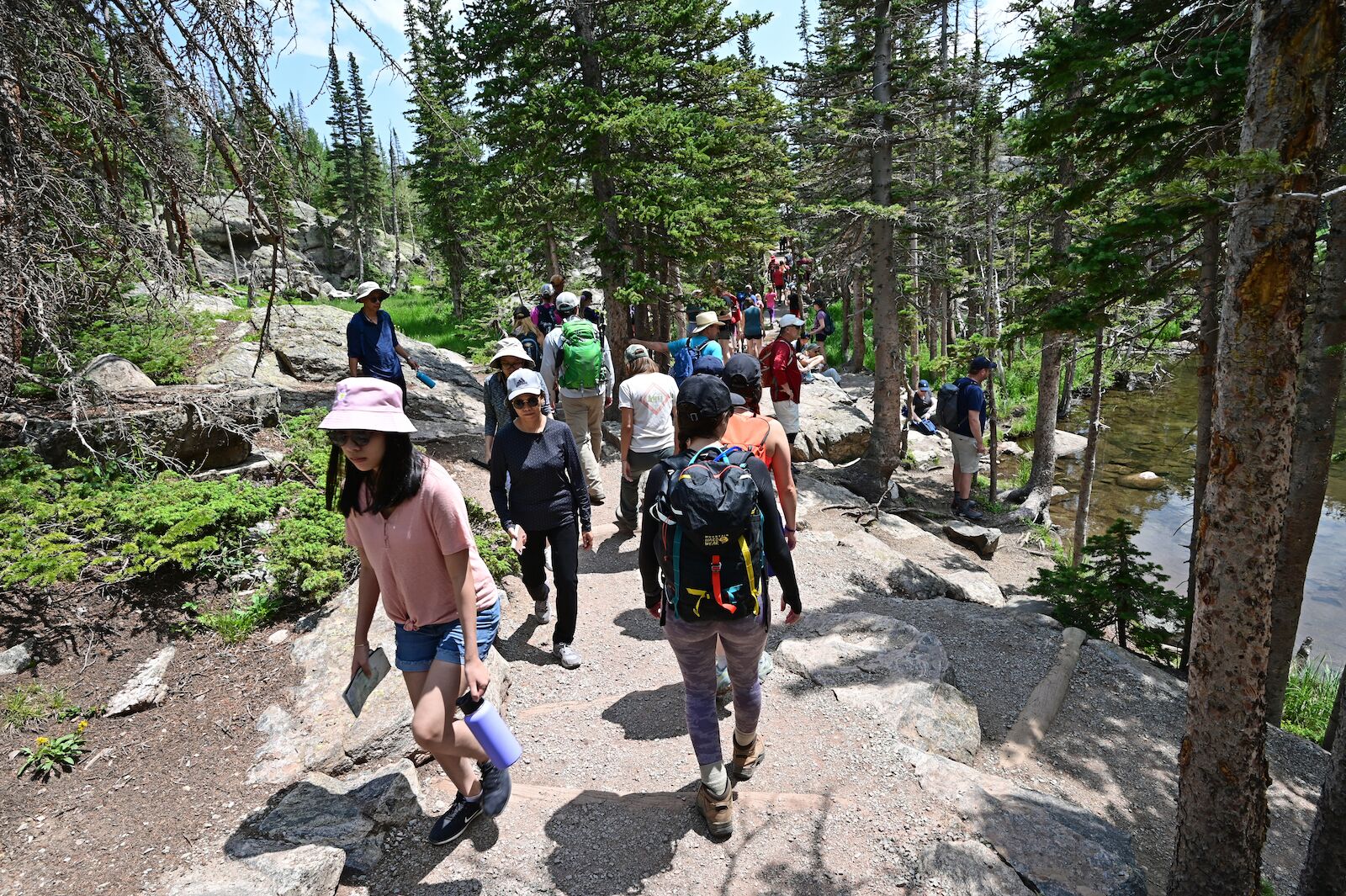
Photo: Francisco Blanco/Shutterstock
Jackson has long been the poster child for the consequences of ignoring community sustainability for the sake of tourism. The joke is that in Jackson Hole, the billionaires are pushing out the millionaires, but it’s hardly a joke. Overtourism is the problem, made worse by the fact that many visitors are in a much higher income bracket, increasing the cost of living enough to price out long-term, full-time residents.
And in the summer, one of the area’s most popular draws is Grand Teton National Park, roughly 20 minutes from the town of Jackson. And according to Chip Jenkins, superintendent of Grand Teton National Park, being a good steward is about more than protecting the land — you have to to think of the park community, too. Jenkins says the park has roughly 180 permanent employees and another 200 summer employees, most of whom live in housing within the park. But the park’s Grand Teton Lodge Company, which runs concessions like lodging and activities within the park, has around 1,000 employees in the peak of summer. And over-visitation is taking how much they can physically do.
“[Grand Teton] has seen about a 20 percent increase in visitors over the last 10 years. This means there are more people who need to use the restrooms and who put trash in the trash cans (good for them!) It is also an increase in the number of cars trying to park in parking lots at peak hours, number of cars and people along roadways to watch wildlife. It’s an increase in the number of medical calls and search and rescue. All of this work takes people to do, supervise, and manage in order to protect park resources and help people. We need to clean restrooms and empty the trash to keep people and wildlife safe. We need more people to manage the traffic and keep people and wildlife separate. As visitation grows this work continues to expand.” – Chip Jenkins, superintendent of Grand Teton National Park
Unfortunately, Grand Teton can’t always just hire more staff to ease the burden on current employees. Not only can parks not afford it — the Park Service revenue generated $28.6 billion for the federal government in 2020 but only received $2.5 billion back in 2021 — but there’s also nowhere to put them. Jenkins points to an issue they had with their chief ranger in 2021. She couldn’t find any affordable housing near town, so the park had to cut into their budget to pay for her lodging — and they expect that expenditure to continue. “We estimate that by 2026, only five percent of employees will live in the private sector housing market,” says Jenkins. That’s going to start costing the park more, which means they’ll have to cut services or rise fees to maintain their budget. That will almost certainly get passed along to visitors.
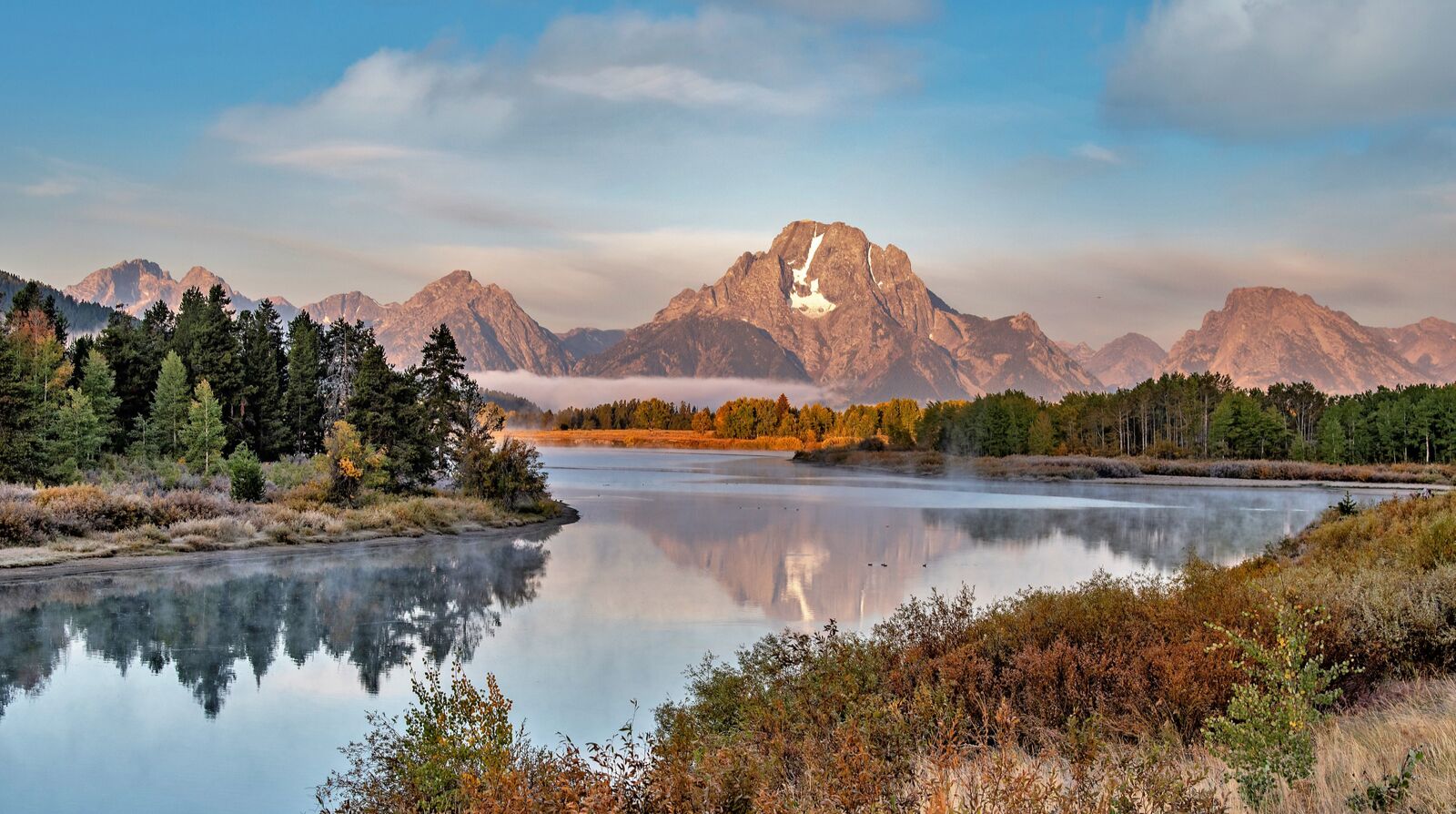
Sure, popular Jenny Lake is gorgeous — but this isn’t Jenny Lake. Consider going somewhere less crowded to help ease the work on park employees. Photo: Prestigious PHotos/Shutterstock
So what’s the answer? Easy: go somewhere less popular. “Memorable experiences can be found in unexpected places,” says Tricia O’Conner, Forest Supervisor in Bridger-Teton National Forest near Jackson Hole. “Don’t get sucked into having to get the specific photo you found on social media. Be open to exploration.”
Want to find somewhere new to go? It’s easy to do: just open GoogleMaps and type in the place you were thinking about going — like “Grand Teton National Park.” Zoom out a little, and boom: you’ll see plenty of areas within a quick drive that offer similar — but far less-crowded — experiences. For example, within 30 minutes of Grand Teton National Park are equally beautiful outdoor areas like Jedediah Smith Wilderness (just north of the park) and the Shoshone National Forest (just east of Grand Teton and Bridger-Teton National Forest). Being beautiful isn’t the only qualification to becoming a national park, and many wilderness areas or state parks are just as stunning (but far less crowded) than their national park neighbors.
5. Go out to dinner on Monday and Tuesdays
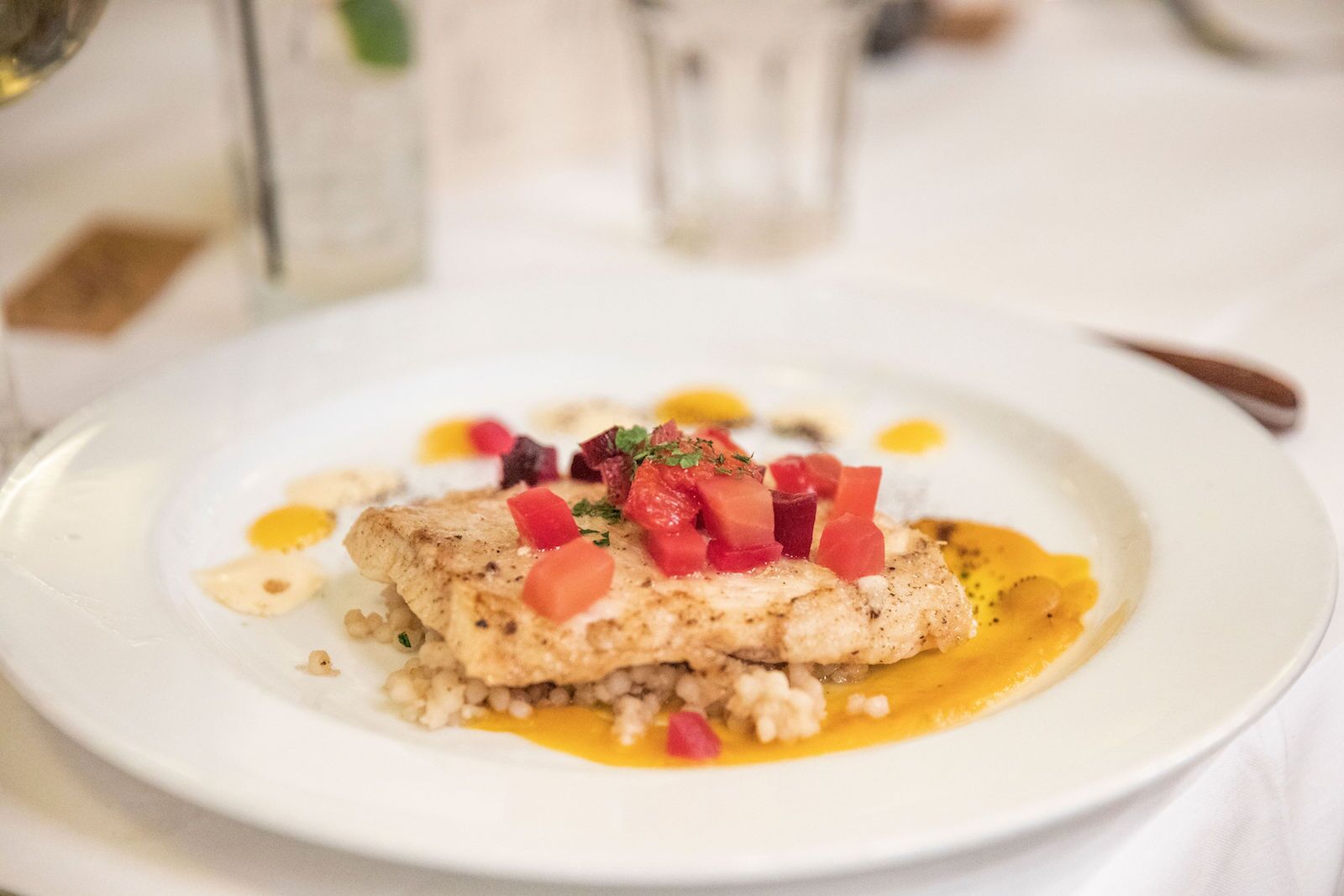
Restaurants like Jackson’s The Bistro are packed on weekends, but visit midweek, and you may be lucky enough to have a visit from the restaurant group’s owner or executive Chef. Photo: Jay Nel-McIntosh / www.jayphotography.com
Over-crowded restaurants aren’t good for anyone. No one wants an hour-long wait, and as someone who lives in a ski town, it’s downright annoying when no restaurants in town are doing takeout because they’re too slammed. While it’s great for employees to make as much money as possible from tips, most waitstaff can’t mentally handle weekend after weekend of getting yelled at because the restaurant is understaffed and kitchen is backed up. It quickly takes a toll on mental health.
But it’s easy to guests to help — just go to the more popular bars and restaurants mid-week. “Our restaurants see high visitation on the weekends, from regional travelers but also from our local community. Mondays and Tuesdays are traditionally slow so supporting local restaurants on those evenings is essential,” says Gavin Fine, owner of the popular Fine Dining Restaurant Group in Jackson. “Having a more balanced guest visitation pattern provides a steadier work environment for our staff, clearer revenue projections, and makes for an even better on-site experience for guests.” The last part is especially important for guests: you won’t wait as long for a table and it’ll be easier to find parking, among other benefits. You may also get to speak with the chefs and sommeliers during your meal, which is a huge selling point for foodie-focused travelers.
6. Teach good behavior
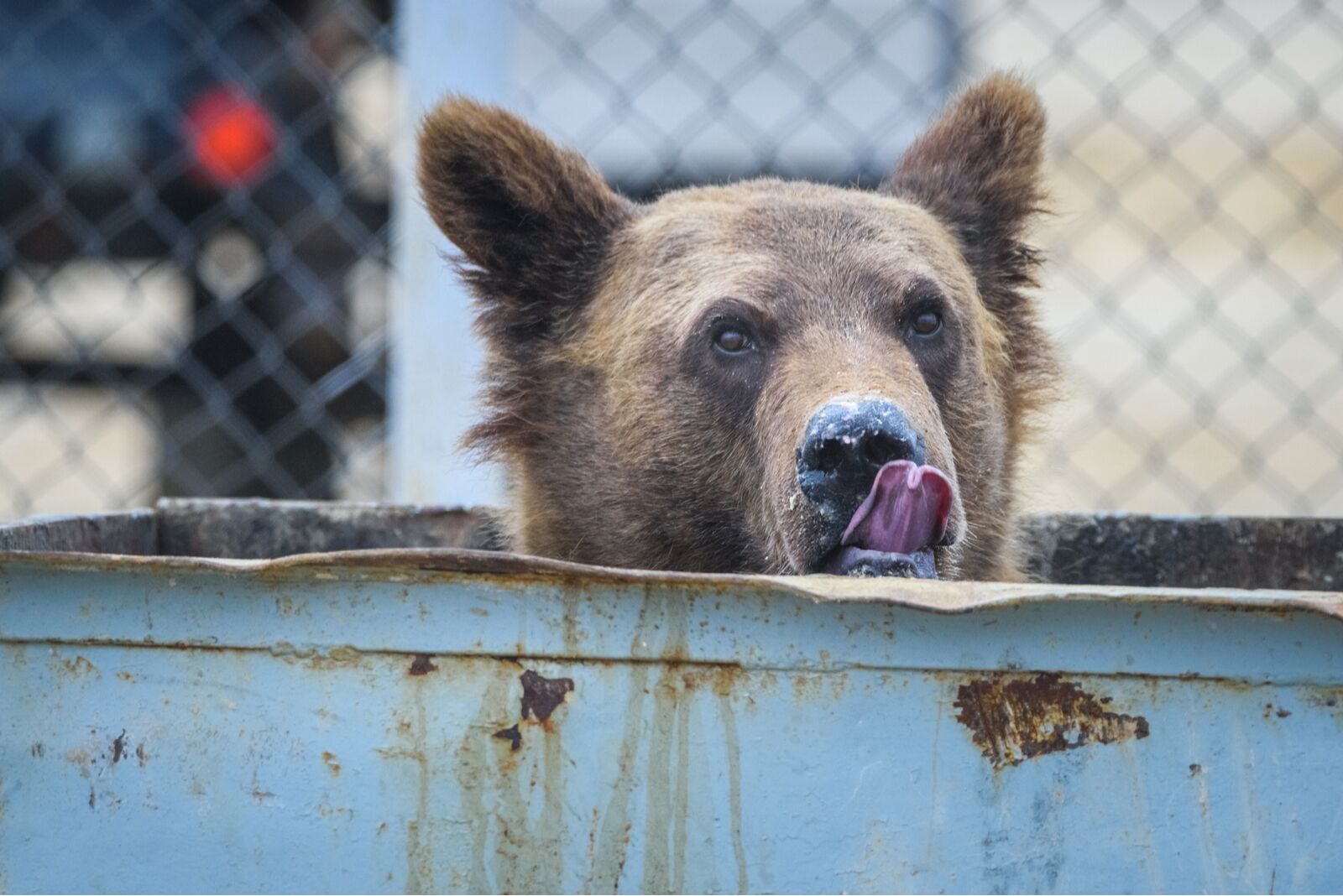
Improper trash disposal can drive wildlife into residential neighborhoods, creating unfortunate encounters for humans and wildlife alike // Photo: Gribov Andrei Aleksandrovich/Shutterstock
On a recent panel on sustainability in Jackson, participants from a variety of tourism and outdoor organizations agreed that education is a huge part of the answer to overtourism. And once you’ve learned how to be a good steward of communities, it’s your turn to teach other people while in the outdoors. “Ten-year-old kids don’t drive themselves to the park – an adult has to bring them,” says Jenkins. “I was not born knowing how to be a steward. Someone had to teach me. One of the most powerful things we can do is make the time, take the effort, to invite other people to public lands and help them learn what it means to be stewards.”
Make sure to brush up your own personal knowledge before visiting a new place to ease the burden put on support staff. For example, fire regulations vary from place to place, and the behavior you need to take when hiking in black bear country is different from what you need to do in grizzly bear country. Know what it means to Leave No Trace or take it one step further and leave it better than you found it. Know how to recreate responsibly, know what the noise cutoffs are if you’re staying in a neighborhood, and whatever you do, don’t leave your trash outside in plastic bags in bear country. ” “We need travelers to embody a collective responsibility to steward and respect these delicate areas,” adds O’Connor of the Forest Service.
7. Book hotels, not just Airbnbs
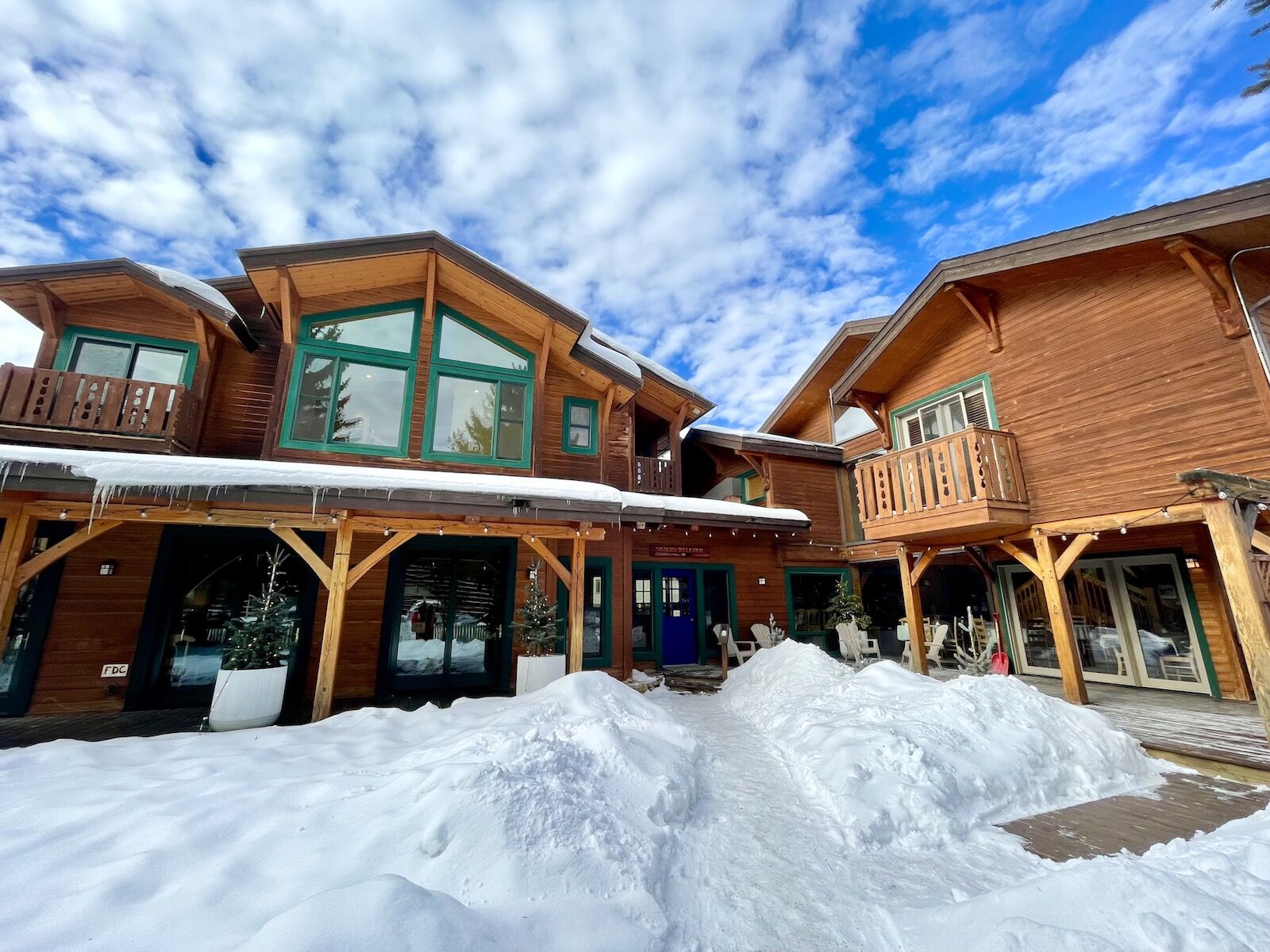
Photo: Suzie Dundas
…especially on weekends. Sure, it’s nice to have a kitchen in an Airbnb, but when demand for Airbnbs rises, long-time residets get pushed out and the remaining real estate becomes very expensive. And you don’t have to rent an Airbnb to have amenities like a kitchen and living room.
For example, in Jackson, Alpine House has large indoor and outdoor communal spaces for guests with fireplaces, fire pits, and plenty of cozy seating. They also offer cabin rentals with laundry and kitchens, all of which are just a few blocks from downtown Jackson staples like the elk antler arches and Million Dollar Cowboy Bar.
Staying at a hotel doesn’t just help prevent the displacement of long-time residents. It also creates more jobs and helps generate taxable income, some of which goes toward tourism-focused events and infrastructure (and education on overtourism).
8. Engage in voluntourism
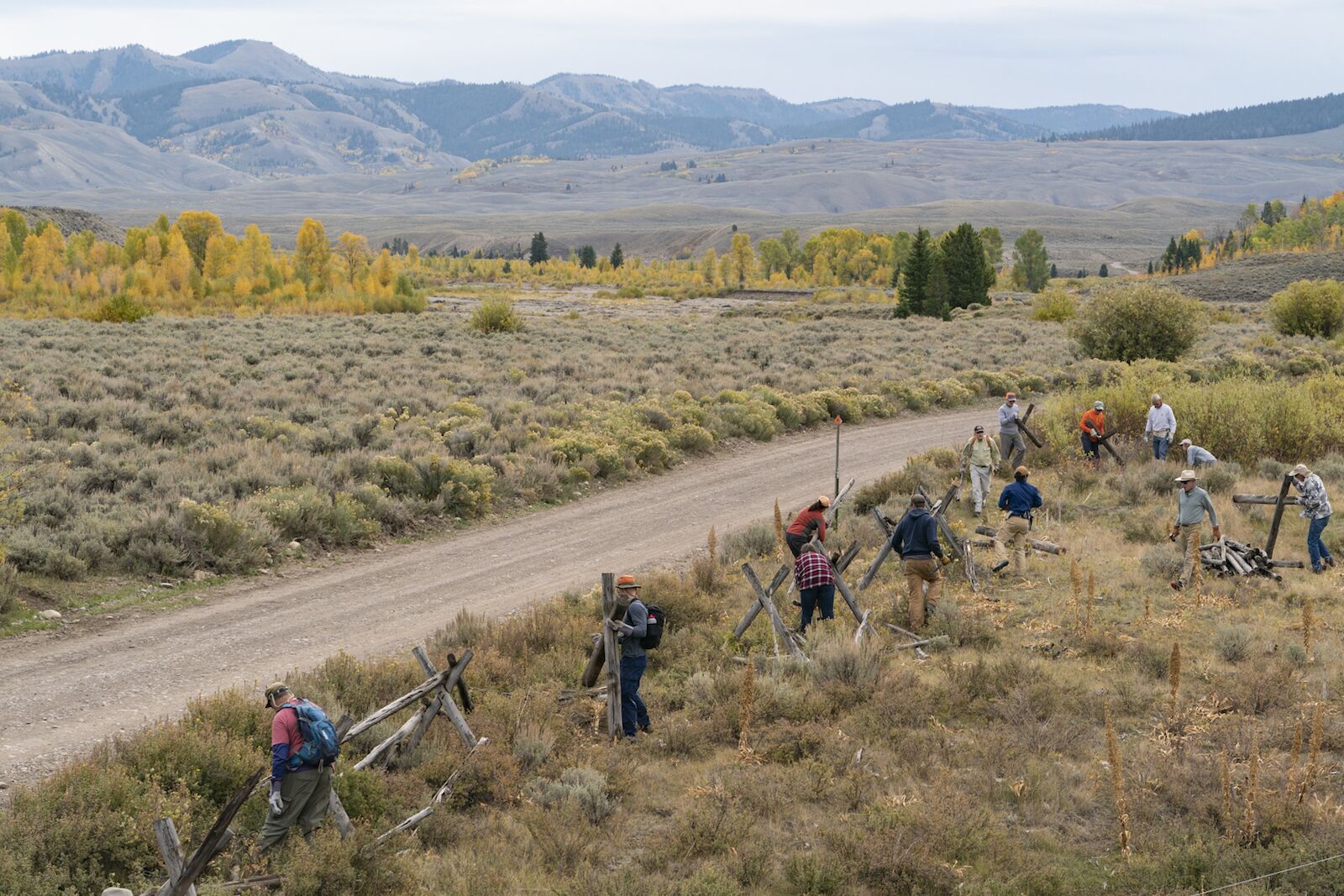
Spend a day leaving a town better than you found it can help give back to the towns struggling under the weight of overtourism. Photo: Christina Paige / Jackson Hole Wildlife Foundation
Want to ensure your trip is helping, not hurting? Spend a day volunteering, or sign up for a full voluntourism trip. Jackson Hole Wildlife Foundation Communications Manager Kyle Kissock says that it’s easy to find volunteer opportunities in mountain towns. “Here in Jackson Hole, the Jackson Hole Wildlife Foundation maintains a calendar of eco-centric volunteer opportunities targeted at visitors as part of our Being Wild Jackson Hole outreach and education campaign. Volunteering with a wildlife conservation or human-welfare organization is a great way to give back to local communities during your vacation. Plus, you’ll almost always learn more about a place than you would otherwise…there’s that added benefit of really getting to feel like a ‘local.'” Kissock suggests that even donating a few dollars when you visit a park or business during your trip can make a difference. So keep a few extra dollar bills to put in the donation jar at the local coffee shop.
8. Be really, really patient
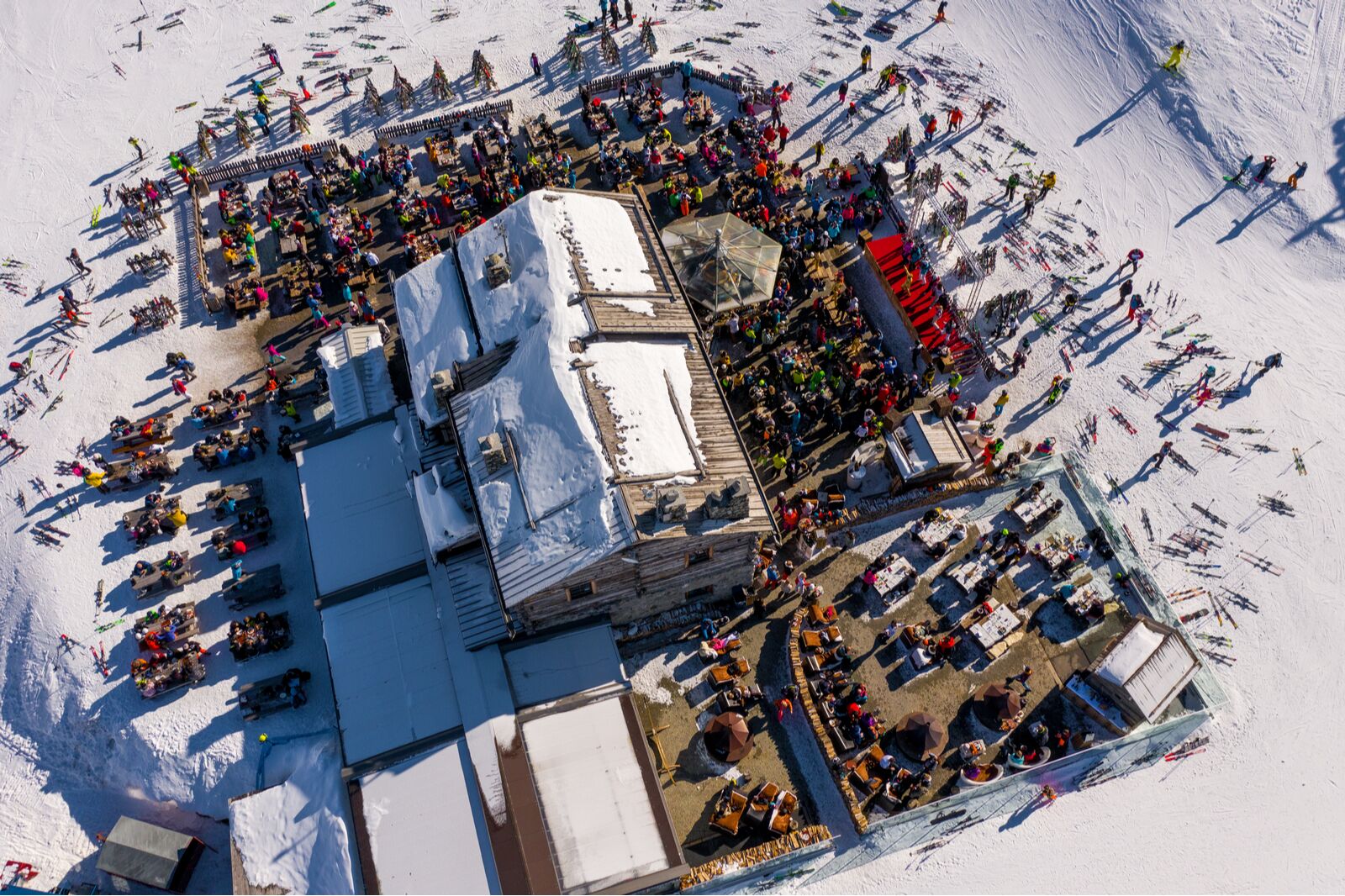
Don’t come to a mountain town in winter without a bit of patience // Photo: Visual media to delight/Shutterstock
Ultimately, many mountain towns around the country share a similar problem: too many visitors, and not enough staff to meet the demand. But even if all travelers suddenly changed their behavior, these problems will last for years — not every second homeowners is going to suddenly switch to long-term rentals again just because they had one holiday weekend without a booking. And that ultimately means travelers need to be patient — extremely patient. Everything is going to take longer, from getting a table at a restaurant and cleaning hotel rooms to getting on a ski lift and driving around town.
These delays are rarely, if ever, a front-line employees’ fault, which means you should never, ever yell at front desk agents, waitstaff, lift operators, grocery store clerks, or parking attendants just because you have to wait in line. Not only is that general human decency, but most people who work in tourism in mountain towns have been overworked and underpaid for years, despite working front-facing jobs in a global pandemic. They’re burned out and stressed, which isn’t good for their families or communities. Be kind and patient. And if you don’t want to wait for a restaurant reservation, see suggestions number one.
9. Shop local
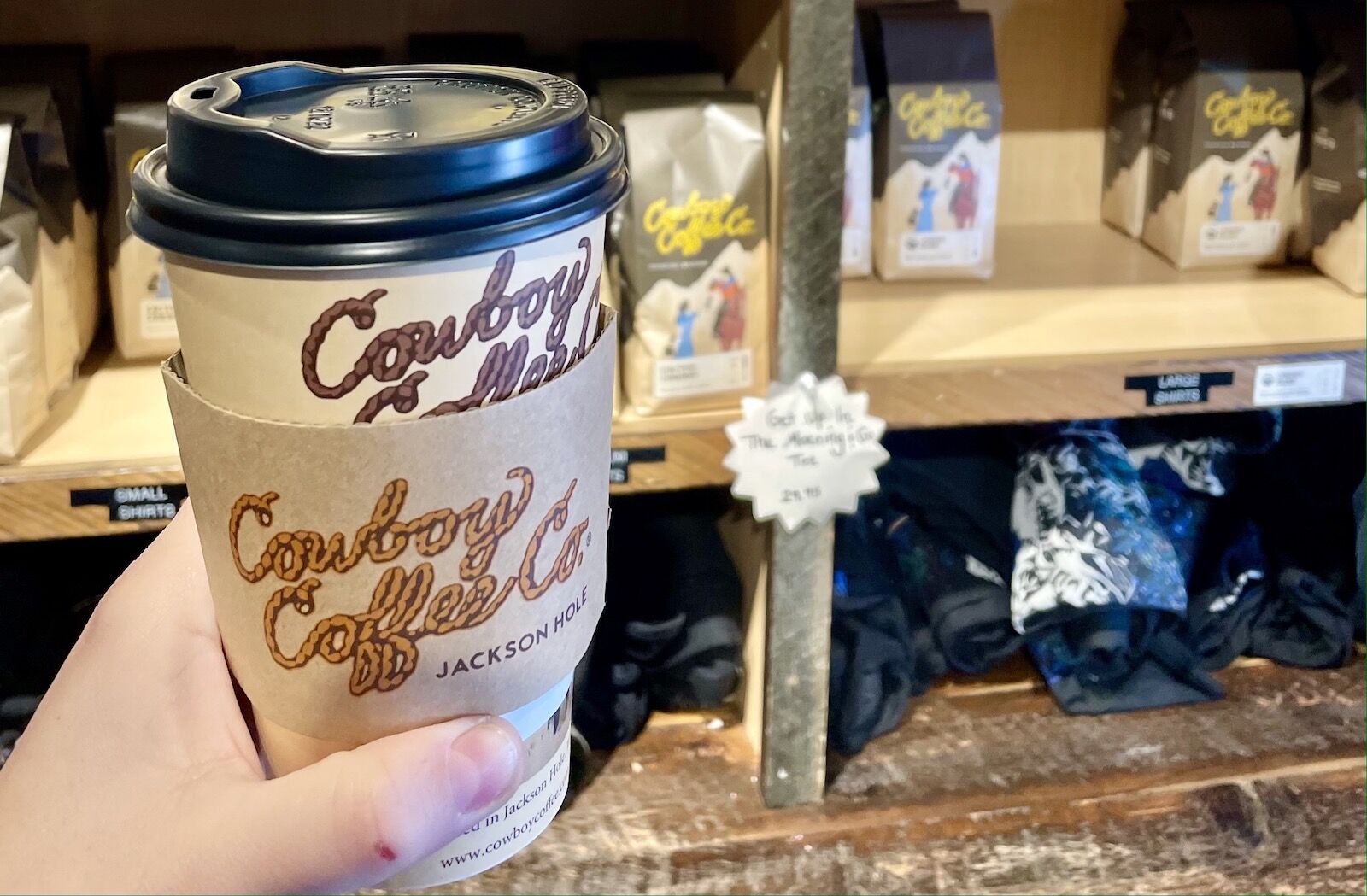
Photo: Suzie Dundas
I know, I know — trips are expensive. But mountain towns are also really expensive, and for the average traveler, spending an extra $5 to buy a souvenir coffee mug at a local shop versus the corporate airport gift shop isn’t going to break the bank — but it may help a local business stay open. Commercial rents are rising in mountain towns, and though rising minimum wages are generally a very good thing, they can pose new challenges for small business owners. So if you can afford it, skip buying the mass-produced Jackson Hole t-shirt and opt instead for a handmade cowboy hat or a cool piece of locally made jewelry. You could also swing by a Mom-and-Pop coffee shop and pick up coffee and breakfast every morning, or grab a bag of coffee to make in your rental kitchen instead of buying a national brand at the grocery store.
10. Tag Responsibly
Love tagging your location in the outdoors on Instagram? That’s cool — but keep it broad. I’m certainly not suggesting gatekeeping or trying to keep anyone out of the outdoors, but adding an extra barrier to finding a place, even if it’s as minor as having to do a bit of Googling — can help dissuade travelers who care more about photos than experiences from heading to crowded towns and destinations.
If you want to help out, consider simply using the “Tag responsibly” text as your location. Otherwise, just keep it broad by getting no more specific than the name of the town or park you’re visiting. This helps spread people out, easing demand on specific businesses, rentals, and parks that don’t have the staff or capacity to keep up. “Small towns have an equally small workforce which is easily overwhelmed,” says O’Connor of the US Forest Service. “Respectful tourism relies on our collective responsibility to make ethical travel choices.”
